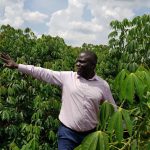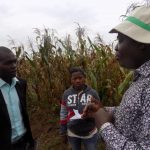Report on the state of Collaborative Forest Management launched.
2 min readBy Christopher Bendana
Kampala
A report compiled by a team of forest experts has revealed a web of failures in the management of the Collaborative Forest Management (CFM) program by the National Forest Authority.
A Review of Collaborative Forest Management in Uganda by Cornelius Kazoora, Deziderius Irumba Ugandan forest experts and their American counterparts Nikola Smith and Jessica highlighted challenges of finance, technical expertise, conflict of interest and corruption in the NFA.
CFM according to A.C. Otieno and Mukadasi Buyinza in their study Collaborative Forest Management in Uganda: A strategy for controlling deforestation in West Bugwe Forest Reserves, Busia district is where the local community is genuinely involved in the management of the forest resources through negotiated processes in which rights, roles, responsibilities, and returns for sustainable of such forest resources are shared.
Presenting findings of the report at the launch yesterday at Hotel Africana in Kampala Irumba said the team looked at four stages of the program in the last 15 years. It looked at design and negotiation, implementation, monitoring and enforcement, and evaluation and learning.
He added that they also did an extensive literature review, and carried out focus group meetings.
He revealed that they found out NFA lacks expertise and positive attitude towards the program.
He said only 44 (13%) of the about 324 CFM had varied agreements. He said agreements were taking 10 years to be signed which is a very long time.
Beatrice Anywar, the state minister for the environment who launched the report said with nature it is okay to warn even the powerful when they are wrong.
She said it was time to come together and increase the forest cover that has been declining over the last 30 years.
Tom Okello, the executive director, NFA explained that CFM was not only about tree planting but that it was also for improving livelihoods by sustainably utilizing forestry resources. He talked of activities like beekeeping.
He said they would fast track some of the recommendations like working on expired agreements. But he said some challenges like getting the right technical staff needed some times because of limited financial resources.
Martin Asiimwe of the World Wide Fund for Nature Uganda, an organization that works with CFM said there was a need to help CFM add value to the forest resources they are utilizing.
Irumba said if well implemented, CFM would reduce conflict between the authority and the community.
“If we are all benefiting from the forest, we all become its protector,” Anywar said.
Among other recommendation were;
Calls to strengthen the capacity and engagement of the NFA
And the need to achieve sufficient, coordinated and strategic diversified CFM financing.
The review was commissioned by NFA to see how the program would be strengthened. It was funded by United States Agency for International Development.








